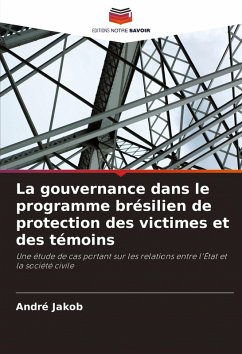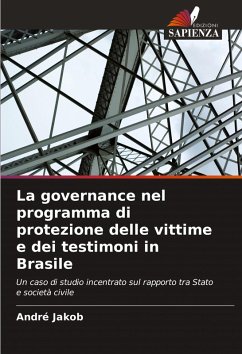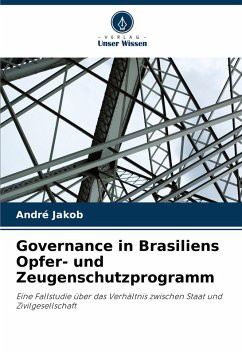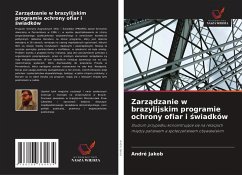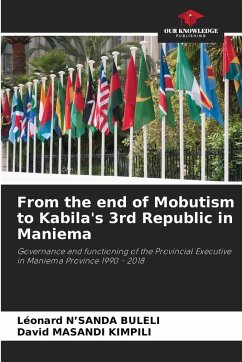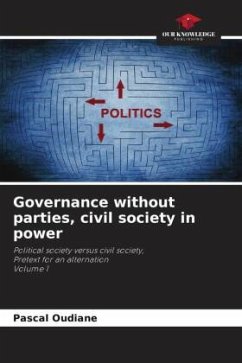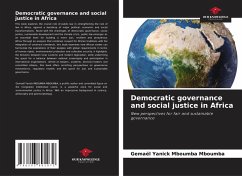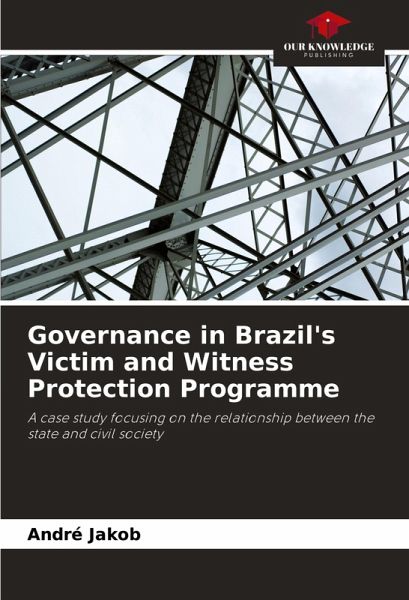
Governance in Brazil's Victim and Witness Protection Programme
A case study focusing on the relationship between the state and civil society
Versandkostenfrei!
Versandfertig in 6-10 Tagen
37,99 €
inkl. MwSt.

PAYBACK Punkte
19 °P sammeln!
The Programme for the Protection of Threatened Victims and Witnesses (PROVITA) was formally created in Pernambuco in 1996, as a result of a demand from organised civil society in a specific political context. Current literature on the programme, which is currently being implemented in 18 states, points to a series of limitations faced, which have as their backdrop the relationship between the governmental and non-governmental institutions in question.This relationship oscillates between partnership and conflict, depending on the angle of analysis. The problem stems from the form of implementat...
The Programme for the Protection of Threatened Victims and Witnesses (PROVITA) was formally created in Pernambuco in 1996, as a result of a demand from organised civil society in a specific political context. Current literature on the programme, which is currently being implemented in 18 states, points to a series of limitations faced, which have as their backdrop the relationship between the governmental and non-governmental institutions in question.This relationship oscillates between partnership and conflict, depending on the angle of analysis. The problem stems from the form of implementation adopted, which is the state's agreement with non-governmental organisations, so that an important element of its management lies in the intersectoral councils. In this context, this dissertation seeks to reconstruct the events that led to the creation of Provita in Pernambuco, which was later expanded nationwide. Then, in view of the players involved in this process, the visions of the state and civil society are confronted, examining the extent to which the problems faced on a daily basis by the programme involve the relationship between these players on the council.





